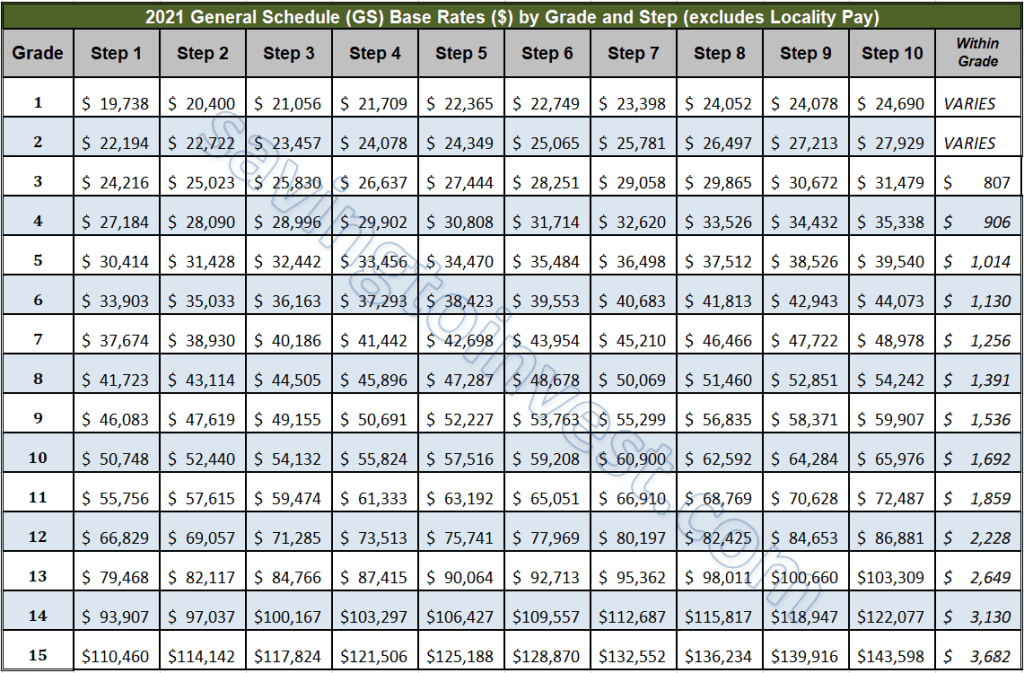
Navigating the complexities of federal employment often begins with understanding the compensation structure. The federal pay schedule, a standardized system, governs how much government employees earn. This framework provides clarity and consistency across various agencies and roles.
This structured approach to compensation aims to ensure fair and equitable pay for the invaluable work performed by federal employees. From scientists to park rangers, the federal pay scale considers factors such as location, job level, and years of service to determine appropriate compensation. Delving into the details of this system can empower current and prospective federal employees to better understand their earning potential.
The current system's roots can be traced back to the Classification Act of 1923, which established a standardized approach to classifying federal positions and setting corresponding pay rates. This act aimed to create a more organized and equitable system compared to the prior inconsistent methods. Over the years, the system has undergone various revisions and adjustments to reflect changing economic conditions and evolving job markets.
The significance of the federal pay schedule extends beyond individual employee compensation. It plays a vital role in attracting and retaining qualified individuals to serve in public service. A transparent and competitive pay structure helps ensure the government can recruit and retain a talented workforce capable of meeting the diverse needs of the nation. Understanding how this system works is crucial for both employees and the government as a whole.
One key issue surrounding the federal pay schedule is the ongoing debate about its competitiveness with the private sector. Maintaining a balance between attracting top talent and managing taxpayer dollars is a complex challenge. Regular reviews and adjustments are necessary to ensure the federal pay system remains fair and effective in a dynamic economic environment.
The federal government's General Schedule (GS) classifies most white-collar civil service positions. Each GS grade, from GS-1 to GS-15, represents a different level of responsibility and complexity. Within each grade are several steps, representing incremental pay increases based on experience and performance. For example, a GS-7, Step 5 employee will earn more than a GS-7, Step 1 employee. Locality pay adjustments are also incorporated based on the cost of living in different geographic areas.
One benefit of the federal pay schedule is its transparency. The pay scales are publicly available, allowing for easy comparison and understanding. Another advantage is the structured promotion system, providing a clear path for career advancement and associated salary increases. Furthermore, the system offers stability and predictability, enabling employees to plan their finances with greater certainty.
To understand your potential earnings, several online resources offer federal pay calculators. These tools allow you to input factors like location, grade, and step to determine your estimated salary. Consulting with a human resources representative within a specific federal agency can also provide personalized guidance.
Advantages and Disadvantages of the Federal Pay Schedule
| Advantages | Disadvantages |
|---|---|
| Transparency and Predictability | Potential for Salary Compression at Higher Grades |
| Structured Promotion System | Difficulty Competing with Private Sector Salaries in Certain Fields |
| Job Security and Benefits | Limited Flexibility in Negotiating Salaries |
Best practices include researching the pay scale for your target position, understanding locality pay adjustments, and exploring potential career progression within your chosen field.
Challenges may include navigating the complexities of the system or addressing pay disparities. Solutions involve seeking clarification from HR professionals and advocating for fair compensation practices.
Frequently asked questions often revolve around locality pay, promotion timelines, and within-grade increases.
Tips for navigating the system include utilizing online resources and staying informed about updates to the federal pay schedule.
In conclusion, the federal pay schedule is a critical component of the federal employment landscape. It provides structure, transparency, and a framework for fair compensation. While challenges exist, such as maintaining competitiveness with the private sector and addressing potential pay disparities, the system plays a vital role in attracting and retaining a qualified workforce to serve the public. By understanding the nuances of the federal pay schedule, both current and prospective federal employees can better navigate their careers and plan for their financial futures. It's a system designed to reward dedication and service, and its continued evolution is essential for a strong and effective federal government. Take the time to explore available resources, ask questions, and advocate for yourself to ensure you receive the compensation you deserve.
Johnson outboard overheating master the water pump impeller swap
Unlocking the gs pay scale your guide to federal employee step increases
Unlocking the killeen temple ft hood craigslist scene









